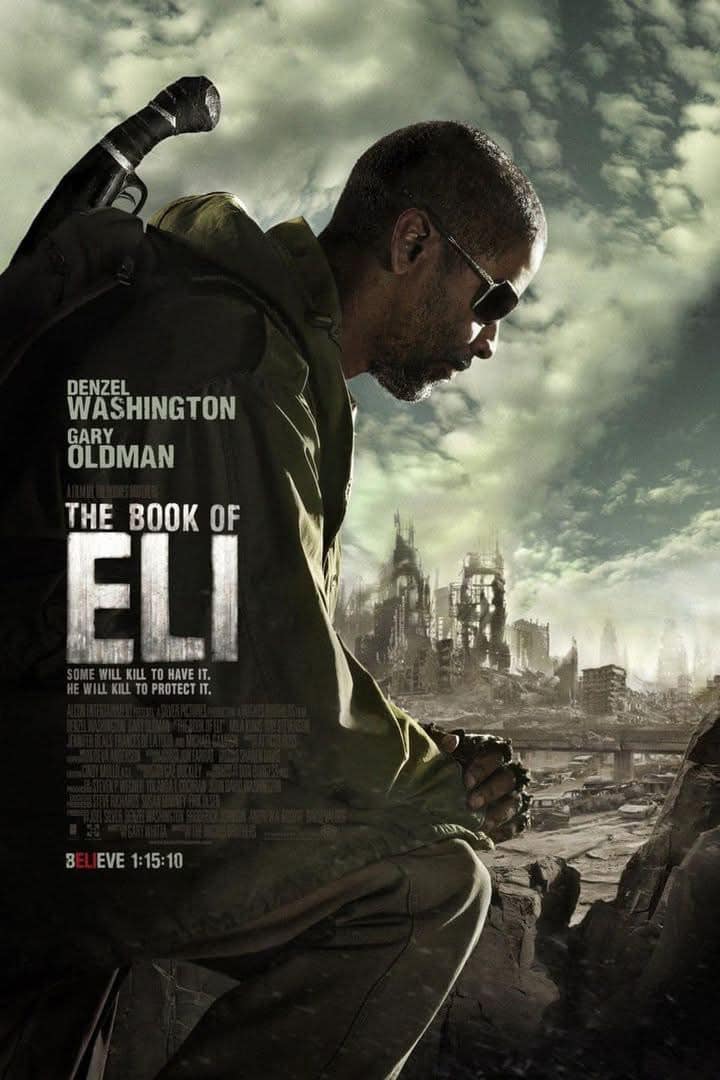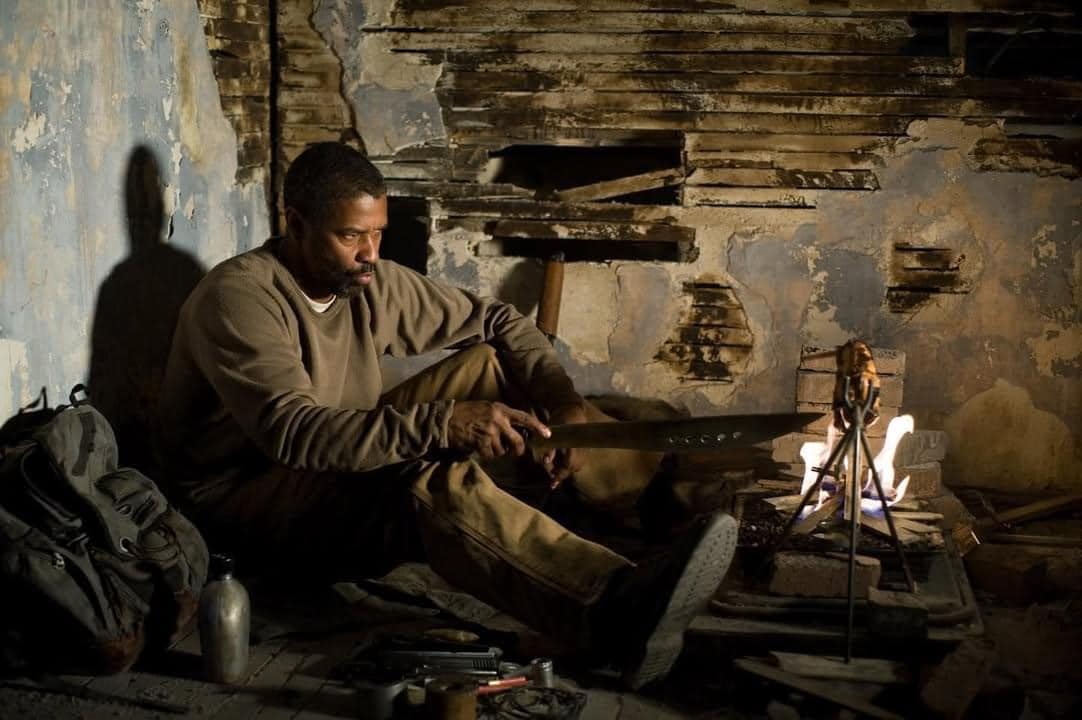The Book of Eli (2010)

The Book of Eli (2010)
The Book of Eli (2010): A Journey Through a Post-Apocalyptic Landscape
The Book of Eli, directed by the Hughes Brothers and released in 2010, is a gripping post-apocalyptic drama that combines action, philosophy, and spirituality in a uniquely compelling narrative. Starring Denzel Washington in a powerful lead role, the film explores themes of faith, survival, and the enduring power of literature in a desolate world.

Plot Overview
Set in a bleak future, decades after a devastating global conflict, the film follows Eli (Denzel Washington), a solitary wanderer who carries with him the last known copy of the Bible. As he journeys across a barren and lawless landscape, he is determined to protect this sacred text, believing it holds the key to saving humanity.
Eli’s quest brings him into contact with various factions and individuals, including the ruthless Carnegie (Gary Oldman), who seeks to acquire the Bible for his own nefarious purposes. As Eli confronts both external threats and internal struggles, he demonstrates exceptional combat skills and resilience, navigating a world rife with danger and moral ambiguity.

Themes of Faith and Redemption
At its core, The Book of Eli is a meditation on faith and the transformative power of belief. Eli’s unwavering commitment to his mission serves as a beacon of hope amidst despair. The film raises profound questions about the role of faith in a world stripped of civilization and order, exploring the idea that literature and spirituality can inspire resilience and guide humanity toward a better future.
Eli’s journey also embodies the concept of sacrifice and the importance of protecting what is sacred. His encounters challenge him to confront his own beliefs and the lengths he is willing to go to preserve the light of knowledge and hope.

Visual Storytelling and Cinematic Craftsmanship
Visually, The Book of Eli is a striking film, characterized by its desaturated color palette and atmospheric cinematography. The harsh, barren landscapes convey the starkness of a post-apocalyptic world, while intimate close-ups reveal the emotional depth of the characters. The use of light and shadow enhances the film’s themes, creating a sense of foreboding and introspection.
The action sequences are choreographed with precision, blending intensity with a thoughtful approach that emphasizes the moral dilemmas faced by Eli. The film’s pacing builds tension and suspense, drawing viewers deeper into Eli’s world.
Strong Performances

Denzel Washington delivers a poignant performance as Eli, embodying both strength and vulnerability. His portrayal evokes empathy and admiration, making Eli a relatable and compelling hero. Gary Oldman, as the antagonist Carnegie, adds layers of complexity to the film, portraying a character driven by ambition and a distorted sense of purpose.
The supporting cast, including Mila Kunis as Solara, a young woman who becomes Eli’s ally, enhances the narrative with their own journeys of discovery and growth. The interactions between characters reveal the nuanced moral landscape of the film, making each encounter significant to Eli’s mission.

Conclusion
The Book of Eli is a thought-provoking exploration of faith, survival, and the power of the written word. Its unique blend of action, philosophy, and spirituality offers audiences a captivating cinematic experience that lingers long after the credits roll.
As Eli journeys through a desolate world, he serves as a reminder of the importance of hope and the resilience of the human spirit.  In a landscape marked by chaos and despair, The Book of Eli shines as a beacon of light, inviting viewers to reflect on their own beliefs and the potential for redemption in a fractured world. This film stands as a testament to the enduring power of stories, reminding us that even in the darkest of times, the pursuit of knowledge and faith can illuminate the path to a brighter future.
In a landscape marked by chaos and despair, The Book of Eli shines as a beacon of light, inviting viewers to reflect on their own beliefs and the potential for redemption in a fractured world. This film stands as a testament to the enduring power of stories, reminding us that even in the darkest of times, the pursuit of knowledge and faith can illuminate the path to a brighter future.
 In a landscape marked by chaos and despair, The Book of Eli shines as a beacon of light, inviting viewers to reflect on their own beliefs and the potential for redemption in a fractured world. This film stands as a testament to the enduring power of stories, reminding us that even in the darkest of times, the pursuit of knowledge and faith can illuminate the path to a brighter future.
In a landscape marked by chaos and despair, The Book of Eli shines as a beacon of light, inviting viewers to reflect on their own beliefs and the potential for redemption in a fractured world. This film stands as a testament to the enduring power of stories, reminding us that even in the darkest of times, the pursuit of knowledge and faith can illuminate the path to a brighter future.










